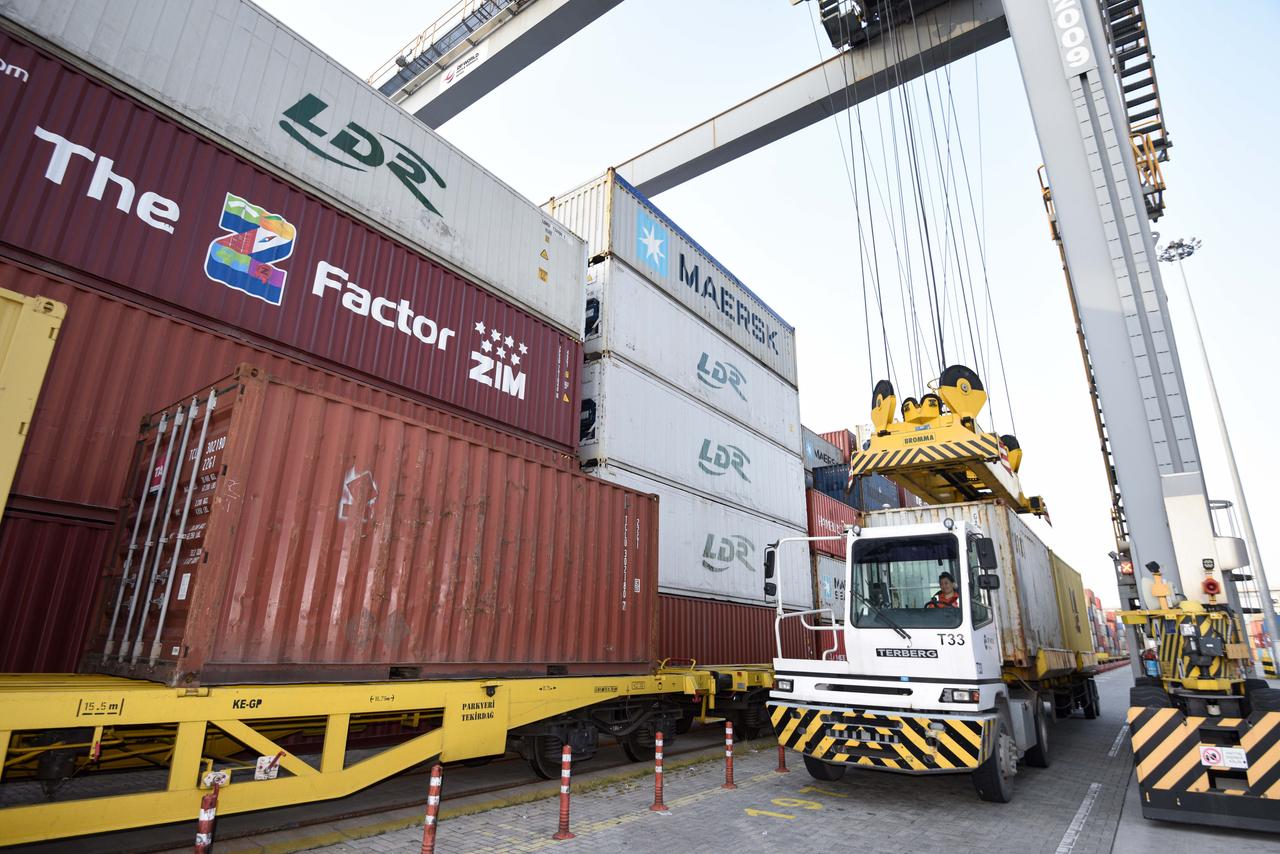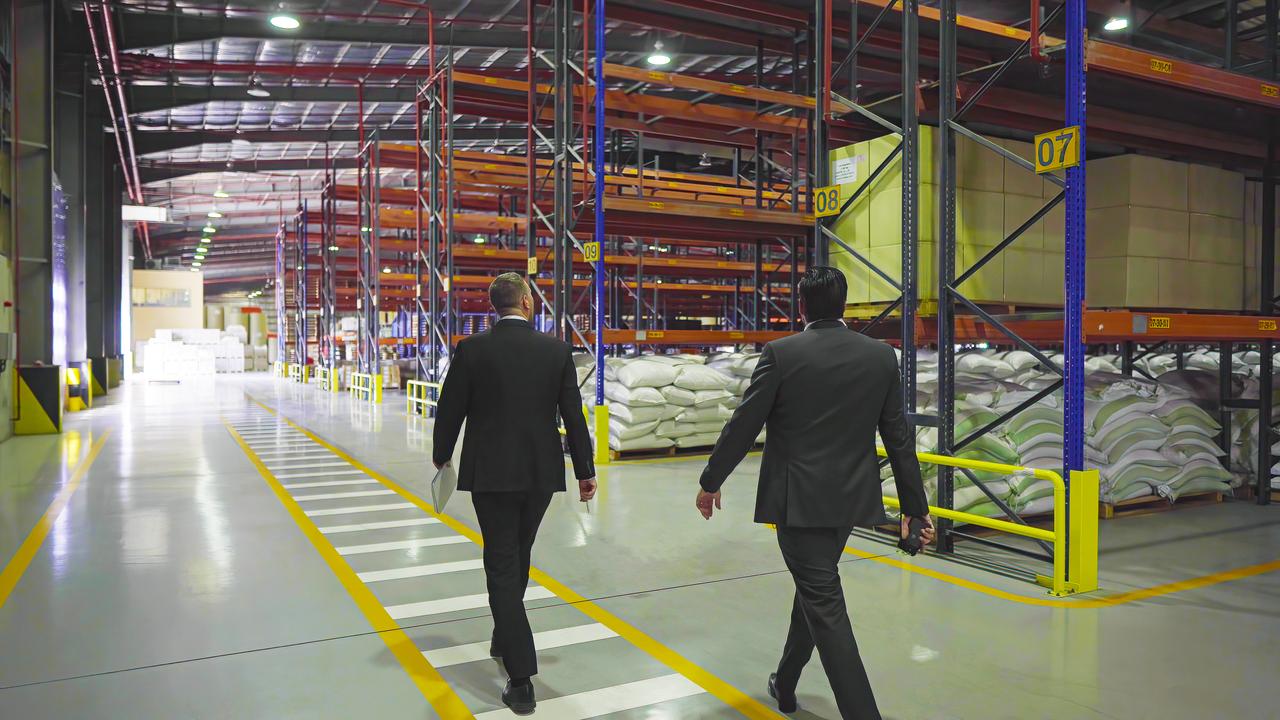Leveraging Container Tracking Software for Effective Risk Management in Shipping
Date: 20/10/2023
Improve your shipping risk management with container tracking software. Learn how to leverage this technology for better results.
Navigating the complexities of risk management can often feel extremely challenging. In the world of logistics and supply chain management, every step matters, including choosing the best container tracking software.
With the myriad of challenges posed by global supply chains, from unpredictable transit times to potential losses and theft, businesses require tools and solutions that offer real-time oversight and insights.
The right container tracking software equips enterprises with the ability to proactively manage risks associated with containerised cargo. Container tracking software not only allows for real-time visibility of cargo's whereabouts but also provides analytics that help in identifying patterns, predicting potential bottlenecks, and ensuring that preventive measures are in place.
By leveraging this technology, businesses can transform their risk management approach, shifting from reactive problem-solving to proactive risk mitigation, ultimately safeguarding their operations and their bottom line.
Risk management is a critical concept that helps businesses navigate potential hazards. It's about understanding and addressing threats to ensure smooth operations. The ISO 31000 guidelines , for instance, provide a universally recognised framework.
• Informed decision-making fosters business growth.
Therefore, understanding risk management is essential for sailing smoothly through everyday operational challenges.
The Risk Management Process
Managing risks is not about avoiding them entirely. Rather, it's about understanding and preparing for them to lessen their impact. Using a structured process is considered as best practice.
Identifying Risks - Understand the situation. Identifying potential threats is the initial step in risk management.
Risk Assessment - Not all risks are equal, some are more damaging than others. Therefore, utilising risk assessment tools is key.
Treating Risks - Using effective techniques, such as avoidance or reduction to handle threats are the most common approaches.

Types of Risks
Risks are a part and parcel of business operations. Risks can stem from a range of sources, each with its own distinct potential to affect the enterprise.
Operational Risk: This is related to daily activities that keep your business running smoothly. For example, issues with supply chain disruptions.
Financial Risk: A major risk faced by businesses involves finances and working capital.
Strategic Risk: All long-term plans for growth carry strategic risks. Missteps here can derail future success, so it is crucial for businesses to have strong strategies in place.
Technology Risk: In the digital age, risks like data breaches or system failures pose serious threats. Companies must take measures such as employing robust cybersecurity protocols to mitigate these dangers.
Container Tracking Software for Effective Risk Management
Container tracking software stands at the forefront of risk management in the logistics industry, offering unparalleled advantages in safeguarding cargo and optimising operations.
At its core, this tool provides a real-time window into the journey of goods, ensuring that stakeholders are always in the loop about the status and location of their shipments.
This constant oversight drastically reduces uncertainties, enabling timely interventions in case of potential disruptions or deviations, and ensures that cargo reaches its destination securely and efficiently.
Beyond tracking, these solutions, such as these solutions, such as CARGOES Flow, integrate advanced analytics and predictive capabilities. They can assess historical data, current conditions, and potential future scenarios to highlight vulnerabilities in the supply chain.
By flagging potential bottlenecks, weather disruptions, or high-risk zones, businesses can pre-emptively reroute cargo, adjust schedules, or take other measures to circumvent challenges. This predictive approach moves the needle from mere problem detection to proactive problem prevention, resulting in smoother operations and reduced costs.
Furthermore, container tracking software significantly enhances communication and collaboration between all parties involved in the supply chain. From shippers and carriers to end-consumers, everyone benefits from transparent and timely updates.
This level of communication builds trust ensures all stakeholders are aligned in their objectives and promotes quick collective decision-making in response to unforeseen events.
Effective Risk Management in Practice
Consider a hypothetical case of a global shipping company. They faced risks related to unpredictable weather conditions and geopolitical tensions disrupting their supply chains.
Rather than reactively dealing with these problems as they arose, this company took a proactive approach. The first step was identifying potential risks by examining historical data and market trends using the business intelligence and analytics available in solutions such as CARGOES Flow.
This analysis revealed certain routes were more susceptible to disruptions due to political instability or severe weather patterns. Using this insight, they developed contingency plans for those specific routes. Much of modern-day logistics requires different modes of transportation. Therefore, the right solution should be able to provide insights in real-time across air, land and sea carriers.
To monitor real-time threats, used cutting-edge container tracking software, allowing them to schedule or reschedule consignments if necessary while ensuring minimal disruption to their service delivery.

Through implementing the right container tracking solution, such as CARGOES Flow, in this example the business has managed risks effectively but also gained an edge over competitors who failed to anticipate similar issues.
Container tracking software, with its multifaceted capabilities, has emerged as an indispensable asset for businesses operating in the complex logistics landscape.
Instead of merely providing a visual of cargo movement, it delves deeper, offering insights, analytics, and predictive intelligence that empower businesses to anticipate and counteract potential risks. This ensures not only the safety and timeliness of shipments but also optimises operations, resulting in significant cost savings and improved customer satisfaction.
In today's fast-paced logistics environment, where unpredictability is the only constant, having a proactive approach to risk management is paramount. Leveraging the right container tracking software bridges the gap between real-time monitoring and strategic decision-making.
